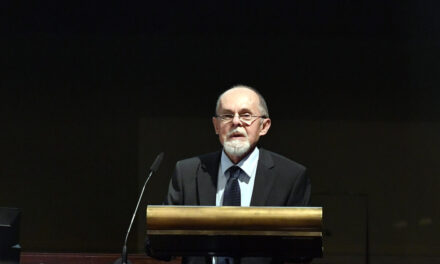Tamás Bauer, a supporter of DK who has seen better days, was very upset: after listening to Karácsony and Márki-Zay's campaign meeting on Sunday, he lost his desire for life.
In his Facebook post , he came to the big conclusion by dissecting American and German analogies, to the point that Dobrev's opponents are not supporting Dobrev. And that pisses me off.
"I watched and listened to both Karácsony's and Márki-Zay's campaign rally on Sunday, and I lost interest in life. Both meetings were about why it shouldn't be, in fact: why Dobrev shouldn't be the joint prime minister candidate, and not about how great it would be to finally get over Orbán's nightmare, and why they would be the best to lead the country after that. "
In this paragraph, of course, it is not Bauer and his private heartache that is important, but the palpable frustration that increasingly captures the voters of the opposition. And the most beautiful thing is that the confusion caused by the stormy turns of the primary election cannot be sewn around the neck of Orbán or Fidesz this time.
In the ATV Forum program, the street opposition similarly voices its dissatisfaction with the "democrats" who are preparing for a constitutional coup - well, not because of the coup plan, it is ethically perfectly fine for them - and this serves as a representative view of the growing confusion caused by the domestic championship. The speakers do not understand what is happening to them, nor why, yet they would entrust the common future to those who are the cause of their frustration: each to their own favorite. Logical. But here comes Bauer, and although not intentionally, he highlights the impossibility of the situation, summarizing the "arguments" of an average DK voter as an addendum:
"I know, of course, the pollsters found that Dobrev has a lot of rejection. But also his support."
The essence of the farce is crystallized in this statement, and even those teetering on the edge of the border feel that the collision of dream and reality, the forced moment of the big bang, is fatally approaching. For no one can be both greatly rejected and greatly supported, just as wet cannot be dry, small cannot be large, and warm cannot be frozen.
The voters of the opposition forced a personalized sense of disappointment from their candidates when they herded the wolf-eyed flashers into a box with a hint of split consciousness, but now that the potion has brewed, they can smell the stench themselves. I wonder why they expected anything else from a mass that is made up of not the least natural political alliances, and whose footing is provided only by the faint slogan of the O1G? By law, a forced alliance can only give rise to compulsions, and its main victim is identity itself.
In 2014, even Klára Dobrev thought that it was "humanly and morally wrong" to team up with Jobbik, which is why she shot Schiffer, but today she has advanced to become the main ally of unwrinkled bad breath; at least until he bags the right-wing votes. Because he is fair. But we also know that there are currently two types of people on the palette of Hungarian politics, one of which Karácsony has already stabbed in the back, and the other of which he has not yet met. And here is Márki-Zay in third place, like a grain of sand in the cogwheel, who somehow spat into the well-composed soup, and his situation is getting worse day by day, and only God can say whether he will change his horizontal swing attempt to a vertical one at this moment, or whether he will instead decide to fall in flight . These are difficult questions, if we take them seriously.
The opposition voter does not understand why this is happening to him, he is frustrated and confused. How will Orbán be replaced like this? Why don't their chosen ones live up to expectations? Why can't they finally agree? Why do they match like that? Why do they agree so much? Why don't they agree? Why do you want to back down? Why don't you want to back down? Why do you support him? Why don't you support him?
Of course, no one is interested in the real reasons hidden under the fault lines, the candidates have no interest in uncovering them, and the voters do not even want to know. It's better to grapple than to face. It is better to point to something else than to say that what we want is alien to life, and we are afraid of giving birth, because a Frankenstein baby is alarming even for us.
Hungarian society was not socialized in colorful coalition governments, our past seventy years have been about everything, but not about this. Those who wish to completely erase the past can now really face the difference between theory and practice, and frustration trembles in the light-year distance between their desires and reality. Because politics, like society, cannot be anything other than the person himself, and opposition politics is played by people who, lacking an independent thought, pack an import vision into their empty-sounding slogans and preach morality without morality.
People who were not even capable of carrying out the intellectual work that would have translated the madness of the West to Central Europeans and Hungarians, people who behind their artificial smiles flash more and more often the scowl of the desire for power, and hatred peeks out from their cracking alliance. They know that their ally today will be their adversary tomorrow, and keeping up appearances is becoming more and more difficult for them.
We can smell it, and this smell leaves its mark on Bauer's zest for life.












